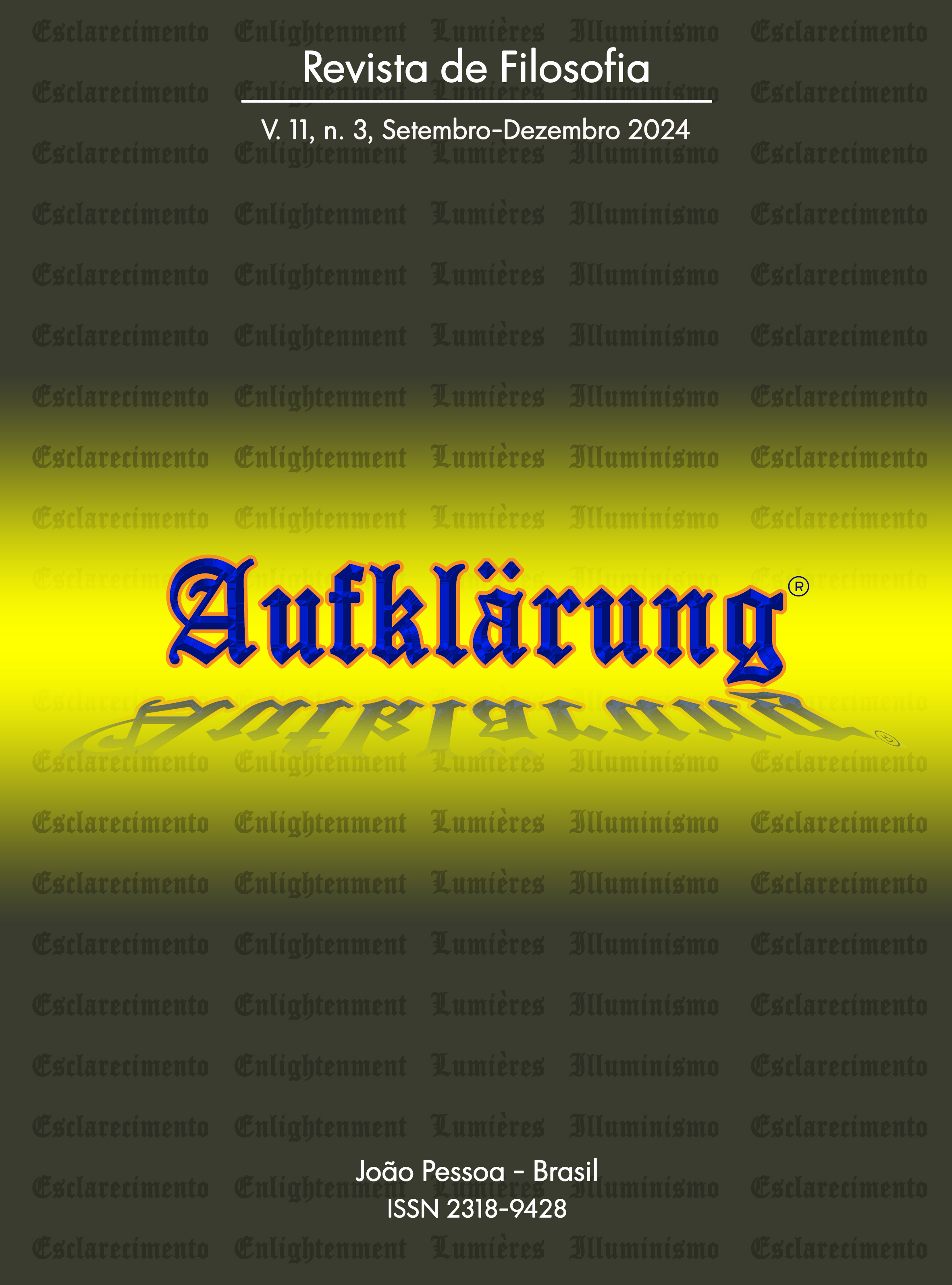Theoritical-methodological assumpsions of archaeological discourse analysis – AAD: Excavating the Archeology of knowledge
DOI:
https://doi.org/10.18012/arf.v11i3.69869Keywords:
Language, Speech, Announced, Archaeological Discourse Analysis, Discourse theory.Abstract
Throughout his life, Foucault's investigations were marked by different interests and, therefore, took place in various locations. Scholars (Machado, 2009; Aquino, 2013, Veiga-Neto, 2014) point out three phases in this journey: the archaeological, centered on knowledge; a genealogical one, interested in power; and ethics, external to the constitution of the subject. Focusing on the first phase, this article records a series of theoretical-methodological assumptions of Archaeological Discourse Analysis – AAD. The findings found and noted in this article result from an excavation process for the book The Archeology of Knowledge (2008), in which Michael Foucault outlined the modus operandi he used in the treatment of the object-discourse, of specific discursive modalities, an example of madness , sexuality and medical discourse, in his youthful research. Language as a terrain for excavating discourse, the archaeological zone of discourse, the positivity of discourse (existence, objectivity, exteriority and productivity), discourse as an utterance and the enunciative constituents of discourse (referentiality, subject position, associated fields and materiality ) appear in the list of noted findings. In effect, such observations highlighted some of the assumptions that founded and guided their investigations, thus outlining the theoretical-methodological boundaries of AAD and the specific features of its approach to discourse.
Downloads
References
ALCÂNTRA, Marcos Angilus Miranda de; CARLOS, Erenildo João. Análise arqueológica do discurso: uma alternativa de investigação na educação de jovens e adultos (EJA). Intersecções (Jundiaí), v. 6, p. 59-73, 2013. Disponível em: http://www.portal.anchieta.br/revistas-elivros/interseccoes/pdf/interseccoes_ano_6_numero_3.pdf. Acesso em: 20 mar. 2024.
AQUINO, Julio Groppa. A difusão do pensamento de Michel Foucault na educação brasileira: um itinerário bibliográfico. Revista Brasileira de Educação, Rio de Janeiro, v. 18, n. 53, p. 301-324, jun. 2013. Disponível em: https://www.scielo.br/scielo.php?script=sci_abstract&pid=S1413- 24782013000200004&lng=pt&nrm=iso&tlng=pt. Acesso em: 20 mar. 2024.
CARLOS, Erenildo João. Achados sobre a noção arqueológica do discurso em Foucault. Revista Dialectus, v. 11, p. 176-191, 2017. Disponível em: <http://repositorio.ufc.br/handle/riufc/32649>. Acesso em: 20 mar. 2024.
FOUCAULT, Michel. O nascimento da clínica. Trad. Roberto Machado. Rio de Janeiro: Forense Universitária, 1977.
FOUCAULT, Michel. Vigiar e Punir: Nascimento da Prisão. Petrópolis: Editora Vozes, 1987.
FOUCAULT, Michael. A ordem do discurso. São Paulo: Edições Loyola, 1996.
FOUCAULT, Michael. História da sexualidade 1: a vontade de saber. Trad. Maria Thereza da Costa Albuquerque; J. A. Guilhan abuquerque. 13. ed., Rio de Janeiro: Graal, 1998.
FOUCAULT, Michel. A Verdade e as Formas Jurídicas. 2.ed. Rio de Janeiro: Nau Ed., 1999.
FOUCAULT, Michel. As palavras e as coisas. Trad. Salma Tammus Muchail. 8. Ed. São Paulo: Martins Fontes, 1999.
FOUCAULT, Michel. A hermenêutica do sujeito. Tradução Márcio Alves da Fonseca. Salma Tannus Muchail. 2. ed. São Paulo: Martins Fontes, 2006.
FOUCAULT, Michel. História da loucura: na idade clássica. Trad. José Teixeira Coelho Neto. São Paulo: perspectiva, 2014.
MACHADO, Roberto. A trajetória da arqueologia. In: Foucault, a ciência e o saber. Rio de Janeiro: Zahar, 2009. p. 145-155.
VEIGA-NETO, Alfredo and Rech, Tatiana Luiza Esquecer Foucault? Pro-Posições, Ago. 2014, vol.25, n.2, p.67-82. Disponível em: http://www.scielo.br/pdf/pp/v25n2/04.pdf. Acesso em: 20 mar. 2024.
Additional Files
Published
How to Cite
Issue
Section
License

This work is licensed under a Creative Commons Attribution 4.0 International License.
Journal general policy
1.This journal works under a Creative Commons License aplied to online journals. That icence can be read in the following link: Creative Commons Attribution 4.0 International (CC BY 4.0).
2.Accordingly to this License, a)the journal declares that authors hold the copyright of their articles without restrictions, and they can archieve them as post-print elsewhere. b)the journal allow the author(s) to retain publishing rights without restrictions.
Metadata Policy for information describing items in the repository
1. Anyone may access the metadata free of charge at anytime.
2.The metadata may be re-used in any medium without prior permission, even commercial purposes provided the OAI Identifier or a link to the original metadata record are given, under the terms of a CC BY license refered for the Journal.







































